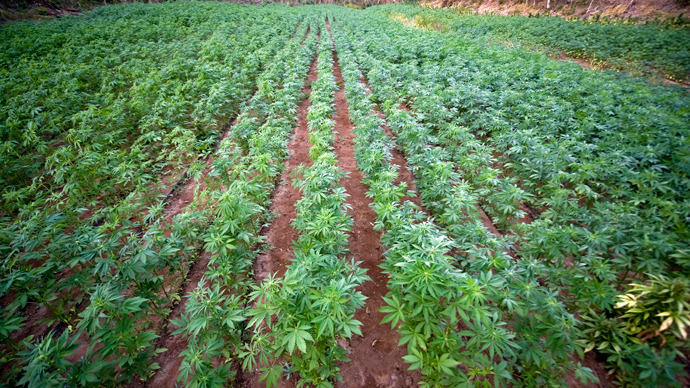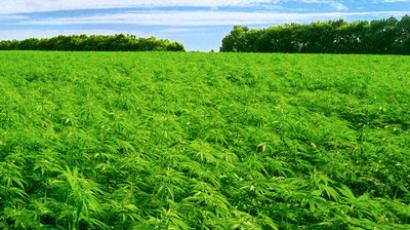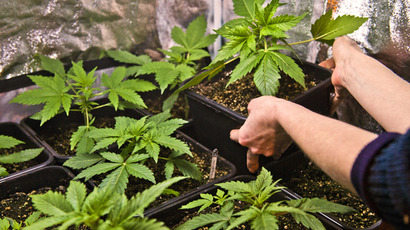Kentucky set to be first state to legalize hemp production

The Kentucky legislature has agreed to allow industrial hemp to be produced within the state’s limits, a minor victory for many that will require the governor’s signature before the next step can occur.
Kentucky Gov. Steve Beshear (D) now has until April 6 to either veto the legislation or sign it into law, but even then the state won’t be allowed to simply start growing the plant to be used for anything from food to fuel: federal legislation outlaws production from coast to coast.
Even with Uncle Sam standing in the way, the state lawmakers that approved the measure say they are optimistic about having Washington overturn the federal ban. The group Vote Hemp says that the states of Colorado, Maine, Montana, North Dakota, Oregon, Vermont, Washington and West Virginia have all previously approved legislation that legalizes hemp production, but the federal mandate has made actually growing the crop impossible everywhere within the US since it is still considered a Schedule I drug. With Kentucky signing on to be the latest state looking to grow, though, things could soon change on a federal level.
“This historic legislation puts Kentucky in position to be first in line if and when the federal government legalizes production of industrial hemp,” Agriculture Commissioner James Comer said in a statement this week. “By passing this bill, the General Assembly has signaled that Kentucky is serious about restoring industrial hemp production to the Commonwealth and doing it in the right way. That will give Kentucky’s congressional delegation more leverage when they seek a federal waiver allowing Kentucky farmers to grow hemp.”
“As soon as the governor signs the bill, I’ll be on the plane to Washington” to seek a waiver, added Comer.
Sen. Rand Paul (R-Kentucky) issued a statement on Wednesday morning after the news was reported in order to thanks his fellow lawmakers for moving forward with something he says will be instrumental in kick-starting his state’s economy.
“I commend the Kentucky General Assembly for final passage of Senate Bill 50. I want to thank Kentucky Commissioner of Agriculture James Comer, Senate Agriculture Committee Chairman Paul Hornback and the members of the Kentucky Industrial Hemp Commission for their leadership and hard work in passing this legislation,” Sen. Paul said.
“Senate Bill 50 is an important step forward in the reintroduction of industrial hemp in Kentucky. I have pledged, along with Rep. John Yarmuth, to seek a waiver when a regulatory framework is in place. I will follow through on that pledge and I hope that Kentucky will soon start growing hemp, creating jobs and leading the nation in this industry again.”
Sen. Mitch McConnell (R-Kentucky.) also went on the record to urge for assistance from Washington as soon as possible to make harvesting hemp a reality.
"I will continue to work with Senator Paul on a federal approach that would enable Kentucky farmers to cultivate and profit from industrial hemp in a way that does not compromise Kentucky law enforcement's marijuana eradication efforts or in any way promote illegal drug use," he said.
Kerri Richardson, a spokesperson for Gov. Beshear, tells the Courier Journal, “The governor is going to review the bill and talk with law enforcement before making any decision.”
Federal restrictions with regards to marijuana began in the early 1900s, but those laws in turn outlawed the production of hemp which, while related to the illegal plant, has a number of desirable qualities and little-to-know detrimental effects.
“While marijuana has a potency range of 3 percent to 20 percent by dry weight of THC, industrial hemp is generally defined as having less than 1.0 percent THC,” says the Arizona Industrial Hemp Council. “Moreover, hemp contains a relatively high percentage of another cannabinoid, CBD, that actually blocks the marijuana high. Hemp, it turns out, is not only not marijuana; it could be called ‘antimarijuana.’”














